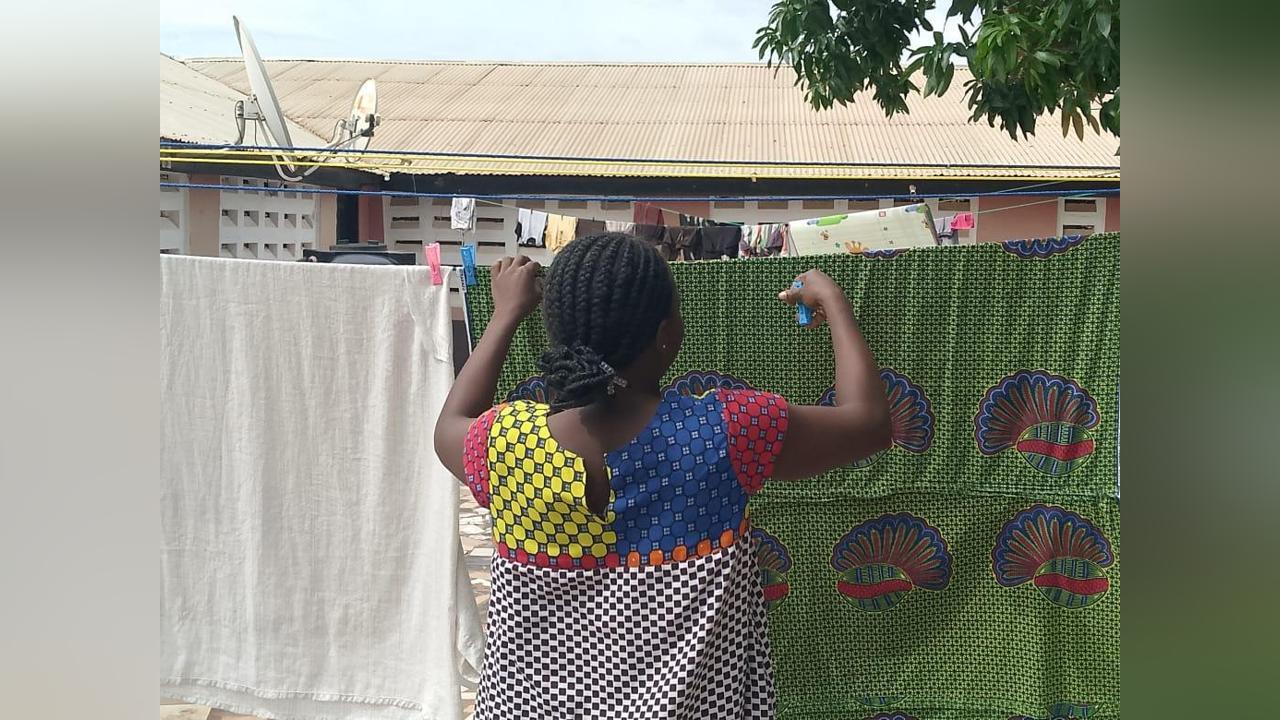Africa-Press – Ghana. Unpaid care work in Ghana is often taken for granted, especially those against the female sex or gender. This discriminatory bias is usually attributed to culture and traditions that spank the overall woman dignity in society.
This article is intended to give meaning to the phenomenon of unpaid care work, the rules protesting and guiding the practice and the way forward in ensuring the signification of disadvantaged genders.
Ghana ratified the Convention on the Elimination of All Forms of Discrimination Against Women (CEDAW) in 1986. Article 11 of the Convention urges member states to recognise the value of unpaid domestic work and promote equal sharing of responsibilities within households.
In addition, the 2023 International Labour Organization (ILO) Resolution on Decent Work and the Care Economy, of which Ghana is a member, acknowledges care work as critical to sustainable development. It encourages states to develop policies that redistribute care responsibilities, improve social infrastructure, and support caregivers.
What the Statistics Reveal on Unpaid Care Work.
According to the 2020 Ghana Time Use Survey by the Ghana Statistical Service, women in Ghana spend an average of 6.4 hours daily on unpaid care and domestic work, compared to 1.7 hours spent by men.
A UN Women study further reveals that women and girls aged 15 and above spend 15.5% of their time on unpaid domestic tasks, more than three times the 4.6% spent by men. Overall, women perform over 76% of all unpaid care work nationwide, with disparities even sharper in rural areas.
Both the World Bank and Oxfam identify unpaid care work as a significant contributor to time poverty, which limits women’s access to education, employment, rest, and civic participation.
Understanding Unpaid Care Work
Unpaid care work involves essential household and caregiving tasks such as cooking, cleaning, child-care, and caring for the sick or elderly. While these activities are fundamental to family and community wellbeing, they remain unrecognised, unmeasured, and disproportionately performed by women and girls.
Mrs Alhassan Bushira, Northern Regional Director of the Department of Gender and Social Protection, describes unpaid care work as one of the most persistent and invisible barriers to gender equality.
“It limits women’s participation in education, employment, leadership, and personal development,” she said. “Girls often miss school time to help their mothers, and women turn down income-generating opportunities because there’s no support at home. This undermines their rights and economic independence.”
Unpaid Care Work and the SDGs
Sustainable Development Goal 5 (SDG 5) focuses on achieving gender equality and empowering all women and girls. Target 5.4 specifically calls for “The recognition and valuation of unpaid care and domestic work through the provision of public services, infrastructure, social protection policies, and the promotion of shared responsibility within the household”.
Madam Esther Nyamekye Opoku, Programmes Director of the Center for Opportunities and Rural Development (CORD-Ghana), said unpaid care work remains invisible in national development frameworks and budgeting. “Care work sustains families and communities, yet it is excluded from key planning and decision-making spaces,” she noted and said “You cannot talk about women’s empowerment when their time is consumed by work that no one values.”
She emphasized the need for government to institutionalise care work through policy, data collection, and funding. “This is not charity, it is a development priority”.
Infrastructure Promises and Ground Realities
Esther Nyamekye Opoku, acknowledged that interventions like production of clean cooking fuels (briquette), CHPS compounds, boreholes, and improved Cookstoves were designed to ease women’s workload, but many are either non-functional or inadequate.
“In some communities, the CHPS compound is just a structure, there is no nurse. The borehole is broken. Women still walk kilometres to fetch water or cook over firewood,” she said.
She warned against superficial responses and advocated for sustainable, community-based solutions putting more emphasis on ecosystem based adaptation measures, as interventions are not enough without considering the dynamics. We must treat care work as a shared public responsibility. It’s a public good and should be treated as such in national policies and budgets.”
She further called for multi-sectoral response, involving the Ministries of Gender, Sanitation, Health, Local Government, and Education in partnership with civil society organizations to achieve a healthy, fair and meaningful renumeration for work done, especially domestic activities undertaken by women and girls that are not quantified for cash payments and other forms of rewards.
Recommendations and Way Forward.
First, there is need for policy and data integration to conduct regular national time use surveys to help integrate unpaid care work indicators into national development plans and statistics.
It is important to ensure reliable access to water, childcare centres, CHPS compounds, and energy – saving cooking technologies and clean cooking fuels as well as ensuring availability to lessen the burden of unpaid care work on women and girls.
Government and other employment agencies must prioritize introducing flexible work arrangements, paid family leave, and other accessible care services to support working mothers and reduce dependence.
It is equally important to promote public awareness and gender – equity campaigns to encourage men and boys to share in household responsibilities.
Finally, resources of key NGOs working within gender frameworks should be drawn into an internally managed unified national pool to spearhead effective national gender policy to include rapid response activities on unpaid care work.
Conclusion
The statistics presented above tells a clear truth that women in Ghana carry a disproportionate share of unpaid care work that remains invisible and undervalued.
This burden does not only limit their potentials but undermine national progress towards inclusive development and gender equality. Recognising, reducing, and redistributing unpaid care work is not a benevolent gesture, it is a matter of justice, dignified living, and sustainable development.
Source: Ghana News Agency
For More News And Analysis About Ghana Follow Africa-Press







